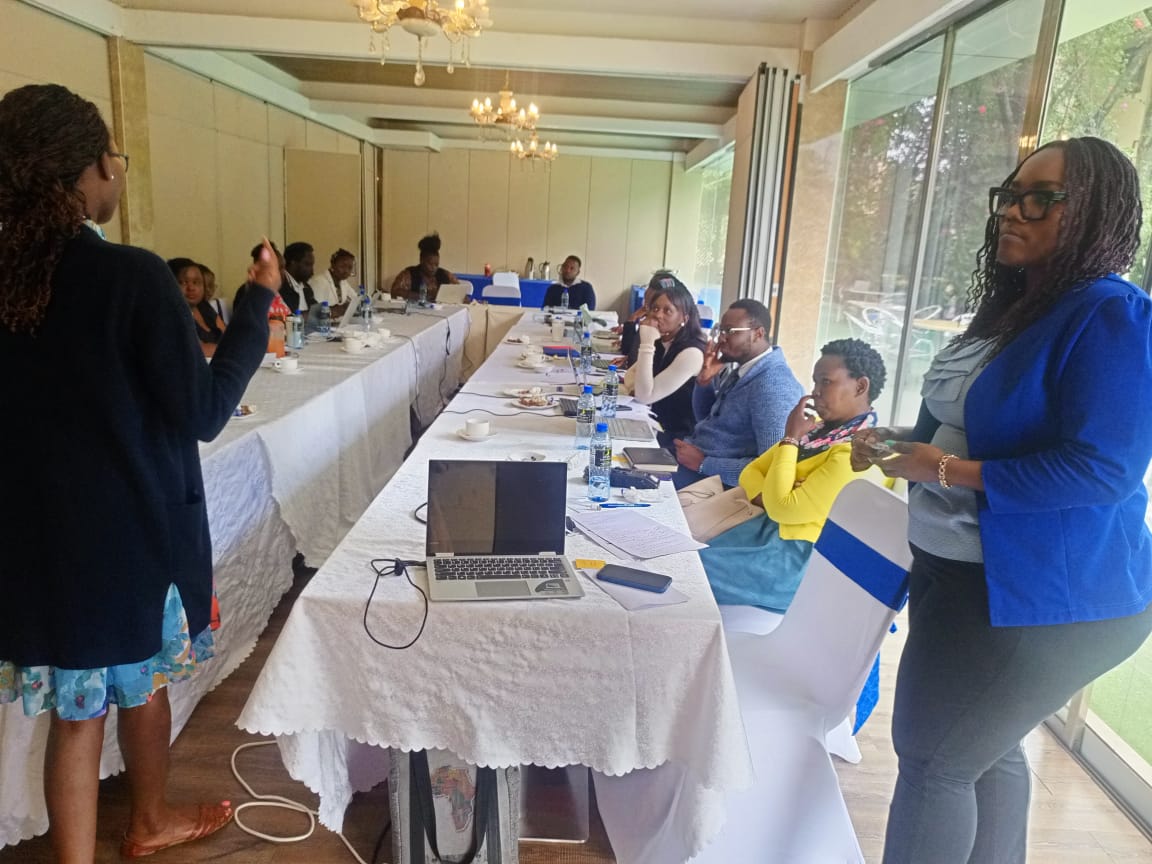
Femicide: Who is killing our women?
In 77% of cases, killings were committed by a person known by the victim.
Among the recommendations put forward was the establishment of legal and policy reforms to address the issue.
In Summary

More than 10 Civil Society organisations (CSOs) convened on Thursday to discuss strategies to end femicide in Kenya.
Speaking during a session in Nairobi, Legal and Ethical Issues Network’s Elsie Milimu emphasised the need for actionable solutions to help the government curb femicide.
“We want to have reforms specifically centred in laws or policies that address femicide. Ideally, we need to think through what triggers someone to reach a point of intentionally killing a woman,” she said.
“We are talking about power imbalances, we're talking about patriarchal stereotypes. So we have to go back to the drawing board and make sure that we're not just making laws.”
Among the recommendations put forward was the establishment of legal and policy reforms to address the issue.
Kenya’s law enforcement agencies recorded 97 cases of femicide between September and November 2024.
Globally, UN Women reported that in 2023 alone, one woman was killed every 10 minutes in intimate partner and family-related murders.
These murders prompted president William Ruto to form a 42 taskforce to look into ways to stop the killings.
“We need the investigations, prosecution and sentencing to be anchored somewhere in law including harmful stereotypes,” she said.
Another key recommendation was for femicide awareness to be treated as a national campaign.
“Think about the HIV/AIDS campaigns in the early 2000s; They were highly effective. We need a similar approach for femicide. Beyond just raising awareness, we need stringent legal reforms, well-documented and enforceable,” she added.
Milimu emphasized that femicide is not just a women’s issue but a societal crisis.
“It disproportionately affects women, but it is a broader societal issue that requires collective action,” she noted.
She said there is a lot to be addressed at the grassroots level and that she is hopeful that the task force will deliver.
The CSOs taking a group picture after the session./NANCY AGUTU
“Our hope is that these memos will be actually looked into and that the recommendations will form part of the implementation plan,” she said.
“The rising cases of femicide mean that we must do more at all levels, from grassroots initiatives to government interventions. While we cannot predict what the government will do, we will continue working and pushing for targeted solutions, especially around shifting social norms.”
Journalists for Human Rights project manager Winnie Syombua, on her part, said the government must be held accountable.
“Yes, the president formed a task force, he even disbursed the Sh100m, but where did the money go? The killings must come to a stop, and it must begin from the goodwill of the government,” she said.
Syombua further called for improved systems to ensure that healthcare workers and judicial officers are adequately trained to handle femicide cases.
“We need amendments to the Protection Against Domestic Violence Act to better address femicide,” she said
Emergency Response and Gender-Based Violence (GBV) Specialist Javan Kado highlighted the need to reframe the conversation around femicide.
“We must recognise that femicide is the killing of a woman simply because she is female. It is not just about the murder of women in general but understanding the role of harmful stereotypes in these crimes,” he said.
“Women have been dying for generations due to gender-based violence. The issue is deeply rooted in societal structures that disproportionately affect women.”
The CSO are having a meeting in Nairobi on Thursday./Nancy Agutu
Kado cited data indicating that one in three women and one in five men are killed in femicide-related cases.
A report from the United Nations Office on Drugs and Crime and UN Women further reveals that current and former intimate partners account for an average of 55% of all intimate partner and family-related killings.
“The statistics show a clear gender disparity, with female victims being significantly more affected,” Kado said.
He expressed hope that the recommendations submitted to the government would lead to concrete changes.
“We hope that the memorandum will be accepted and implemented—it should not be just another exercise in futility. We expect to see legal measures that actively challenge and dismantle harmful stereotypes,” he said.
Kado also stressed the need to begin changing societal attitudes from a young age.
“Mindsets must shift as early as kindergarten. Children should be taught that killing women is wrong, that gender-based violence is unacceptable, and that harmful stereotypes must be challenged,” he said.
The Civil society groups were drawn from KELIN, FIDA, the Zamara Foundation, IMLU, Shofco, the Center for Study of Adolescents, the Wangu Kania Foundation, the Center for Reproductive Rights, the State Dept of Gender and Affirmative Action, Birth and Beyond, Akina Mama wa Africa, and Galck+

In 77% of cases, killings were committed by a person known by the victim.

Intimate partners and family members perpetrate the majority of killings.

Women aged 18 to 35 at 59% form the largest demographic of victims of femicide in Kenya.